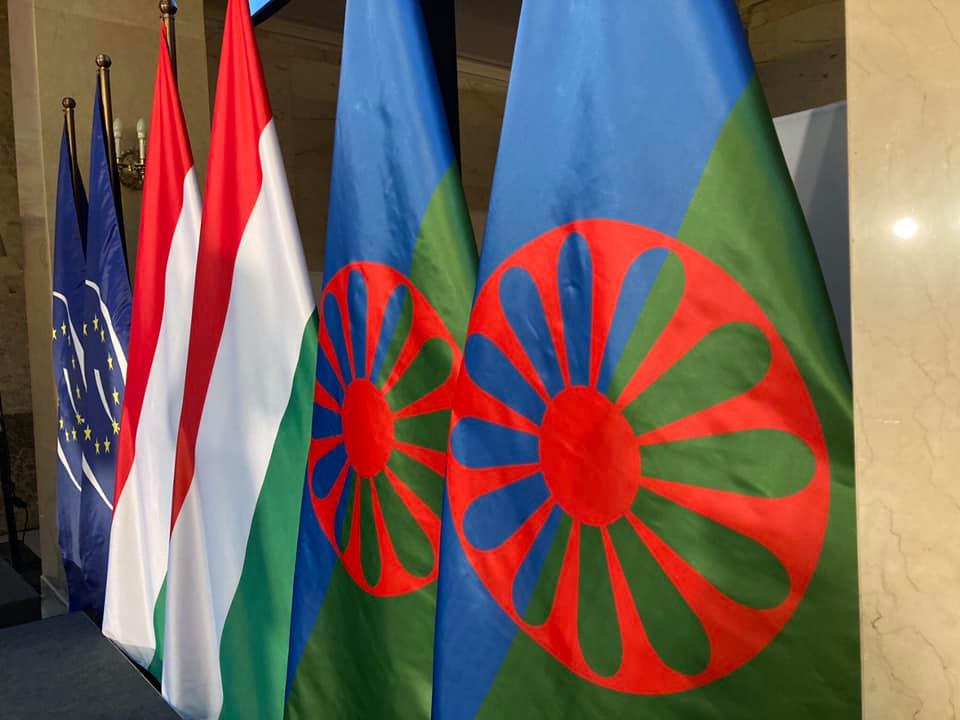
The participants of the “Hungarian National Roma Platform” consulted in Eger on Thursday
The participants of the “Hungarian National Roma Platform” consulted in Eger on Thursday
On Thursday, the “Hungarian National Roma Platform” took place in Eger, Heves County. The consultation event was opened by Katalin Victor Langerné, Deputy State Secretary for Social Inclusion of the Ministry of Interior, represented by dr László Ulicska, Head of Department.
Other welcome speeches were delivered by dr Attila Simon Juhász, President of the Heves County Assembly, Gábor Minczér, Deputy Mayor of Eger, and Félix Farkas, Roma nationality advocate.
The presentations provided the participants with valuable professional insights: dr. László Ulicska presented the latest developments in social inclusion policy, and Pál Andó, Head of the North-Hungarian Social Inclusion Directorate, explained the role of Directorate General for Social Inclusion in social inclusion policy, drawing attention to the importance of mentoring.
Lilla Mátyás, a professional staff member of the Hungarian Charity Service of the Order of Malta, presented the long-term development programme of the emerging settlements. The presence approach is being carried forward in the five most disadvantaged settlements of Sellye, Kunhegyes, Gönc, Cigánd and Baktalórántháza based on the example of Tarnabod in 2004, applying the principle of the Hungarian Charity Service of the Order of Malta. Afterwards, Ildikó Szabó-Fazekas from the Deputy State Secretariat gave a presentation on the planned social inclusion programmes for the period 2021-2027.
This was followed by a section titled “Those who live and work among us in the county”, in which local good practices had been presented. First, dr. József Hadnagy, Head of the Department of Social Pedagogy at Eszterházy Károly University in Eger, gave a presentation on innovative community-based crisis management to support social inclusion on the local level. He emphasised that the Roma Special College[1] in Eger is one of the most successful in the country, and also spoke about the situation of a segregated neighbourhood in Eger called Szala.
Dr. Klára Czike, the professional leader of the Association for the Development of Social Capital, continued with a presentation on the Bari Shej programme in Heves, aiming the involvement and support of Roma girls in their school careers through mentoring. The programme for girls aged 12 to 16 covered a period of 24 months. The expert drew attention to the need to keep disadvantaged young people in secondary school, as it is still common for Roma girls to start a family at a very young age (in their teens), contributing to drop out of secondary school.
The event ended with an intense professional consultation, about the need for an advanced school leaving certificate in social and helping professions at university level, the abolition of the OKJ training courses, the remaining high rate of Roma children not completing the 8th grade of primary school, and the problem of positive discrimination. The consultation will be continued in Pest County in early November.
[1] Special colleges are community based professional workshops involving students and teachers eager to organise extracurricular academic and community building activities. Among these initiatives Roma Special Colleges are a dedicated social inclusion measure supporting disadvantaged and especially Roma university students with special emphasis on social support, enhance academic achievements and social responsibility.
367 megtekintés
